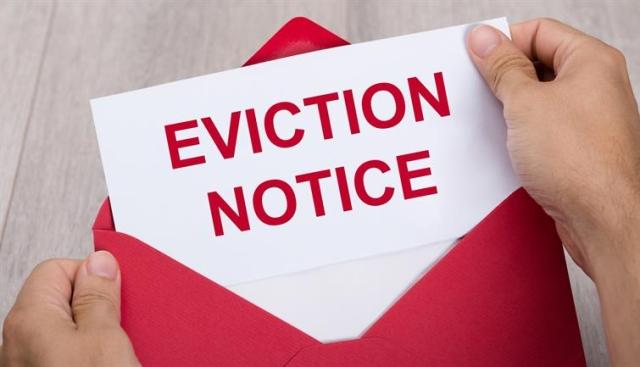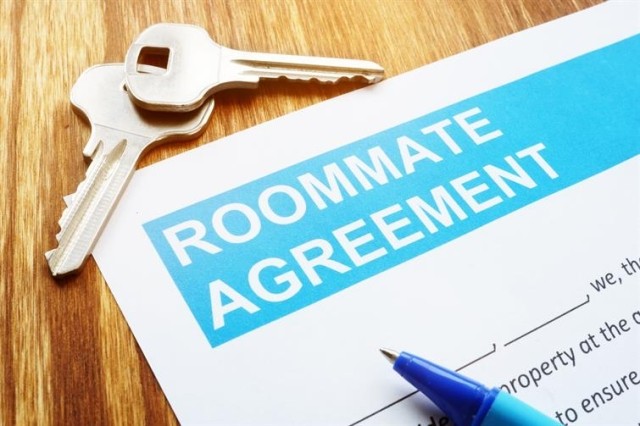It’s a scary topic, but the eviction process is something every renter should understand. Hopefully you’ll never experience an eviction, but if you do, take some comfort in knowing you’re not alone. A study conducted by Princeton University’s Eviction Lab found that almost a million people were evicted in a single year – and that’s just evictions ordered by a judge, not the cases never brought to court.
But as long as you pay your rent on time, you have nothing to worry about, right? Well, not exactly. Let’s take a closer look at what could get you evicted, the types of notices you might receive, and the steps you can take to fix the situation before the process begins.
Common Reasons for Eviction and How to Avoid Them
Non-payment of rent is definitely something that could get you evicted. But did you know that consistently paying rent late is also a cause for eviction? How about sneaking a pet into your apartment? Here are the legal ways you could get evicted:
- Non-Payment of Rent
- Paying Consistently Late
- A Lease Violation
- Property Damage
- Drug Use/Illegal Activity
- No Cause
Let’s look at each of these in more depth:
Non-payment of rent
Sure, you don’t set out to rent a place and then stop paying for it, but many scenarios could force this into a reality: a job loss, a roommate suddenly moves out and leaves you in a place you can’t afford on your own, or an unexpected event like a medical emergency.
So how late do you have to be in order to get evicted? This should be stated in your lease, and it is usually between three and 10 days. It also varies by state: In Georgia, the property manager/landlord could start the eviction process one day after the rent is due.
Paying consistently late
Whether it’s forgetfulness or just putting rent off in favor of other bills, consistently paying late could get you evicted. There should be a clause in your lease concerning late payments, but not paying your rent on time could be enough of a reason to evict you. In most states, you can’t be evicted for not paying late fees.
Lease Violations
Your lease should describe what’s allowed and what isn’t in your rental, and it will include a variety of things, such as pets, the names of the tenants and occupancy, and various restrictions. At the risk of sounding like a Jeff Foxworthy routine, if your lease states you can only have a cat and you sneak in a labradoodle (well, they’re just so cute), you might have violated your lease.
If you move someone in to help with expenses when your lease prohibits roommates, you’ve violated your lease. If your lease states that you will keep the property clean and you litter the yard with rusted bicycles and old tires, yep, you’ve violated your lease. If you go out of town on business for three months and decide to sublet your apartment without the landlord’s consent, you’ve just violated your lease.
Property Damage
This could be completely unintentional, such as leaving your hair straightening iron on next to your hand towel and burning down your bathroom (it could happen). Perhaps you decided to put a hot tub on your second-story balcony … and it was the collapse heard ‘round the apartment community. Or, you decide an open-concept floor plan would be nice. It’s only one wall you’re knocking down, and you’re sure this is a simple DIY project … until it isn’t. Leaving trash around or being generally dirty could also lead to eviction, especially if you damage the carpets or walls.
An interesting caveat: If you’re a hoarder, you can’t legally be evicted. Hoarding is considered a mental health disorder and is therefore protected by the federal Fair Housing Act. As a hoarder, you have the legal right to request a reasonable accommodation—a request for a waiver or change in policies to provide equal access and opportunity for housing. But that doesn’t mean you couldn’t get evicted for another reason, such as blocking emergency exits, interfering with ventilation systems, keeping perishable items in a way that attracts mold or rodents, or otherwise damaging the property.
Drug use/illegal activity
This is essentially a deal-breaker, meaning that in most states, a landlord can terminate a lease with only a 24-hour notice for drug or crime-related activity. In Texas, your lease could be immediately terminated for public indecency. In Arkansas, getting evicted is a crime in itself. If a landlord gives the tenant a written notice to vacate the property, the tenant has 10 days to comply or be guilty of a misdemeanor, with the possibility of fines and even jail time.
No Cause
This is a tricky one, but basically if you’re renting a place month-to-month, your landlord can issue a “No Cause” notice to leave. This notice should be issued 15 days before the end of the month or when the rent is due. This can be for any reason, as long as it isn’t discriminatory.
The Law and the Eviction Process
As a renter, you have certain rights. For example, a landlord cannot simply change the locks or shut off the utilities. This is called self-help eviction and is usually illegal. If the landlord doesn’t give proper notice, you can fight the eviction in court. Every state has its own requirements for the notice of eviction, so be sure to check the laws in your state (you can go to HUD.gov/states, click on your state, then scroll down to the “How can we help?” section and click the box labeled “Rent Relief & Eviction Resources” to learn more).
The first step in a legal eviction is terminating the tenancy. This is a notice, usually written, that basically lets you know that you have to either fix the issue or move out within a certain number of days. There are several types of notices based on where you live, but they typically include these three:
- A “Pay Rent or Quit” Notice
- A “Cure or Quit” Notice
- An “Unconditional Quit” Notice
Here’s what each of these mean:
A Pay Rent or Quit Notice is delivered when you are late on your rent. It will usually state that you have a certain number of days to pay rent or move out.
A Cure or Quit Notice is what you’ll typically get when you violate the lease (the labradoodle in a cats-only apartment community, for example). You’ll have a certain number of days to fix the violation or move out.
An Unconditional Quit Notice usually means there’s no option other than to move out. This notice will give you a certain number of days to leave. This notice is given if you have repeatedly violated the rental agreement, you severely damaged the property (such as collapsing the balcony with a hot tub), or you’ve engaged in illegal activity on the property.
If you don’t pay, cure, or move within the time frame given, then the property manager or landlord can file a complaint with the courts. A hearing will then be scheduled. At the hearing, the landlord will present proof that you’ve violated the lease agreement. If the judge rules in the landlord’s favor, you not only have to move out but you could be liable for court fees, unpaid rent, and penalties.
The entire eviction process could take two to three months or even longer.
Paying Rent After an Eviction Notice: What You Need to Know
If you get a “Pay or Quit” notice, this is like a warning – pay or else you could be evicted. If you pay within the specified number of days in the notice, that’s usually where it ends. When the landlord accepts the payment after the “Pay or Quit” notice, it dismisses the eviction process. In most states, the landlord must accept the late payment if it is paid before the stated deadline.
Suppose you go to your landlord and offer to pay half now, and the rest in two weeks. If your landlord accepts the partial payment (he can refuse this arrangement), this would also end the eviction process. If you don’t pay the rest at the agreed-upon time, the landlord would have to start the eviction process over again and can’t start from the original missed date.
Understand the Impact of an Eviction Notice on Your Record
If you respond within the timeframe given on the notice, it stops there—it won’t go on your public record because paperwork wouldn’t be filed with the courts. On the other hand, if you don’t heed the warning and you are legally evicted, this will go on your public record.
Your credit report won’t show an eviction, but if the property manager/landlord puts you in collections for unpaid rent, that would show up – and so would any civil judgements if you’re sued for breaking the lease. An eviction stays on your public record for roughly seven years.
While it’s a difficult process, an eviction can be expunged from your record. This process isn’t easy, so you may want to consult an attorney and do ample research about the laws pertaining to expungement in your state.






